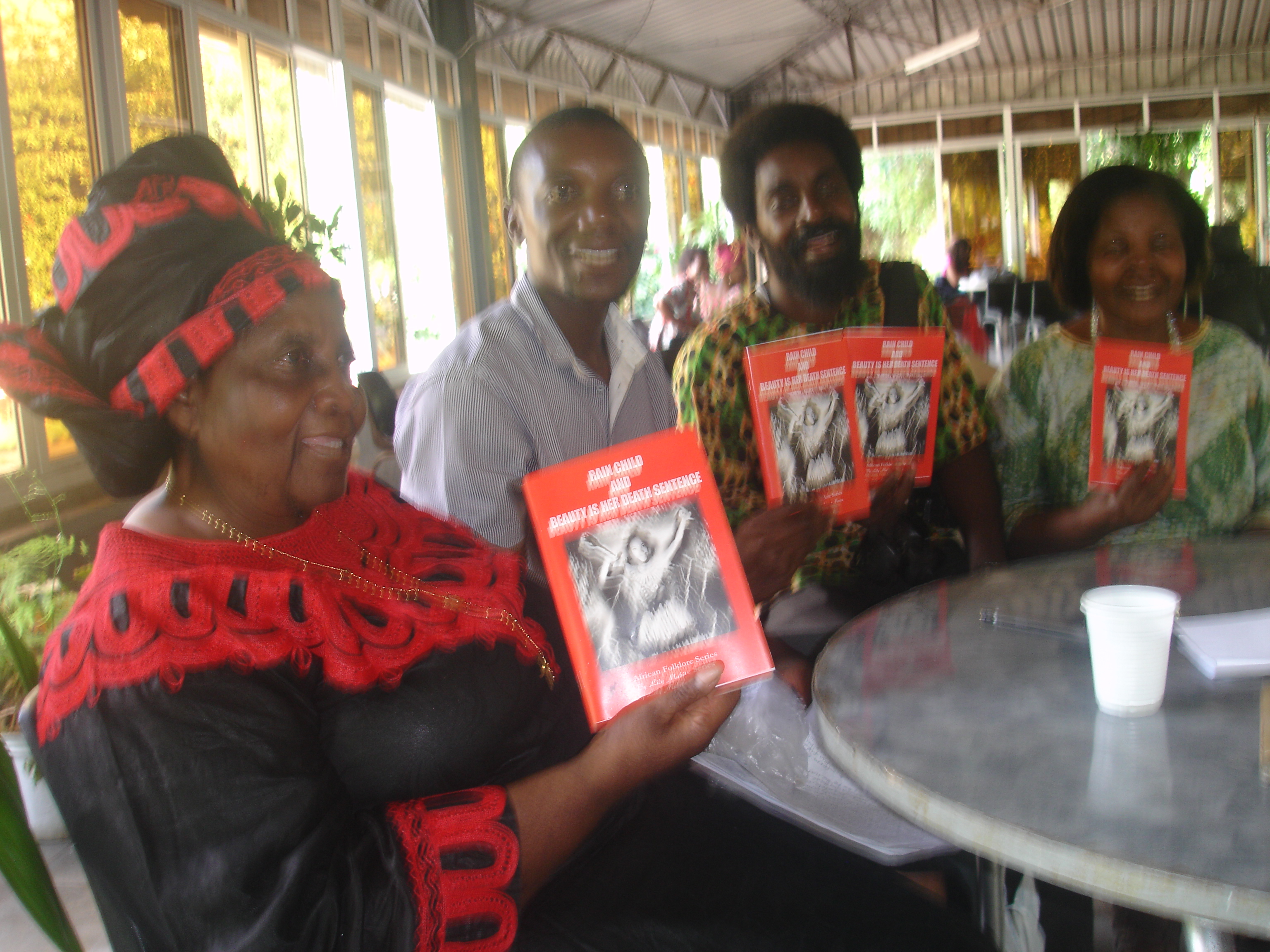Sarah Hlupekile Longwe launches Lily Monze’s ‘Rain Child’ book
Notice: Undefined index: catFilterList in /home/zambi/public_html/wp-content/plugins/wp-likes/api.php on line 243
By Kasebamashila Kaseba

Ambassador Lily Mubitana Monze’s Rain Child book launch Anglican Cathedral of the Holy Cross Monday 4 December 2017
Ambassador Lily Mubitana Monze, one of Zambia’s 100 graduates at Independence in 1964 of which she was among the first five female graduates, from Chipembi Girls Secondary School in Chief Chamuka’s Central Province area has just written a book entitled ‘Rain Child and Beauty Is Her Death Sentence’.
The African folklore series dubbed a premier production has two fictional stories, have high moral content and are quite gripping both young and old, was launched by Non Governmental Coordinating Council (NGOCC) Chairperson Sara Hlupekile Longwe.
The colourful lunch-hour launch took place on Monday, 4th December, 2017 in the Saint Francis Chapel at the Anglican Cathedral of the Holy Cross on Lusaka’s Church Road, witnessed by the art-couple Simon and Cynthia Zukas, former Chief Justice, Justice Lombe Chibesakunda and Ambassador Dr. Inonge Mbikusita Lewanika.
Zambia Council for Social Development (ZCSD) Executive Director, Lewis Mwape, Electoral Expert McDonald Chipenzi and veteran broadcaster Doreen Mukanzo witnessed Chipembi Girls Alumni Association (ChiGAA) Chairperson Gladys Nhekairo-Mutukwa praise Mubitana Monze, Dorothy Kazunga-Zulu and Dr. Mutumba Bull as female luminaries from Chipembi Girls among Zambia’s first 100 university graduates.
“African folklore is part of our proud cultural heritage. Since the art of passing it on orally is dying out, this book is part of an attempt at preserving the material in a permanent way. The stories will also boost the repertoire of indigenous reading material in our educational institutions, homes and libraries,” said an elated Mubitana Monze.
Former Taskforce on Corruption Chairperson Mark Chona heard Zambians being pressed to publish books.
However, during a sidelines interview Zambian Developmental Media Alliance (ZADEMA) Executive Member Derrick Sinjela lamented lack of publishing houses as reason why fewer people become authors.
“We need to see a lot of people taking a role as publishers. A birth of publishers ready to scout for manuscripts and advancing money to identified individuals will motivate budding authors,” Sinjela, a Journalists Against Piracy in Zambia (JAPIZ) Secretary General admonished.





















